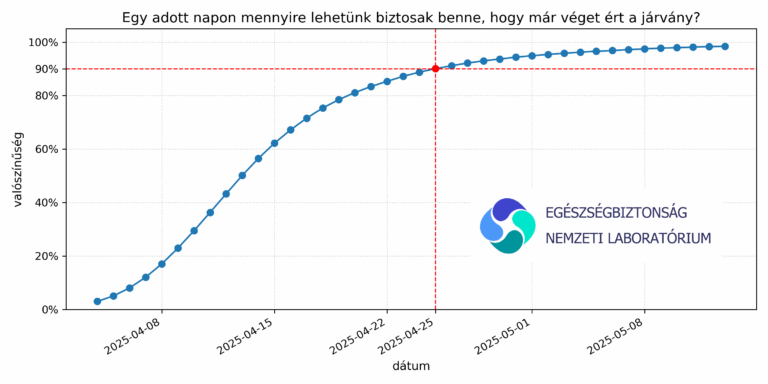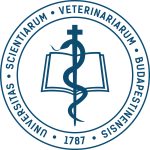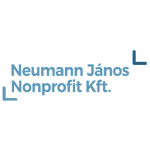NATIONAL LABORATORY FOR HEALTH SECURITY, HUNGARY
The vision of the National Laboratory is to provide the scientific basis for data and analysis-based decision making in the fields of health, disease control and ecosystems in Hungary. The three areas are closely intertwined and new synergies will be created through surveillance, big data methods and modelling.
NEWS

A study by mathematicians at the University of Szeged reveals the chaotic nature of virus evolution
A new model from mathematicians at the University of Szeged uses chaos theory to show how evolutionary balancing between immune evasion and infectivity can lead to new virus variants with unpredictable properties. The university website interviewed Gergely Röst.

Véget ért-e a ragadós száj- és körömfájás (RSZKF) járvány?
Járványmatematikai gyorselemzés, 2025 április 17. Magyarországon április 2, Szlovákiában április 4 óta nem volt újabb megerősített RSZKF eset. Sokakat érdeklő kérdés, hogy mennyire lehetünk biztosak benne, hogy véget ért a járvány. Mivel a betegségnek van egy lappangási ideje, és ez a vírus bizonyos körülmények között hetekig, vagy akár hónapokig is fertőzőképes tud maradni, nem lehet teljesen kizárni, hogy nem lesz

Mystery tick has caused alarm in Hungary
News of a "dangerous albino tick" has hit the internet recently, with some sources claiming that a previously unknown species of tick has appeared in Hungary and could be a vector for Crimean-Congo haemorrhagic fever. Gábor Földvári was interviewed by Origo.
Divisions
Our work integrates the competences of various disciplines through the application of mathematical methods for modelling infectious diseases: mathematics, epidemiology, biostatistics, data science, network science, medicine, systems biology, control theory, computer science, quantitative social sciences. We support preparedness, strategic planning, rapid response, and evidence informed decision making in health emergency through innovative surveillance systems and data guided analysis.
The goal the Division of Invasion Biology is to provide a coherent approach across disciplines to tackle the challenges of invasive species. With a particular focus on species that play a key nature conservation, economic or societal role, it will
i) document and continuously monitor invasion,
ii) understand the mechanisms behind invasion,
iii-iv) explore the ecological, social and economic impacts of invasion,
v) predict invasion processes, and
vi) test and develop methods for control of invasive species.
Division of Data-Driven Health
The Data-Driven Health Division is the domestic methodological hub for the globally trending shift to a data-driven healthcare paradigm.
Our primary objective is to promote the development of data-driven healthcare and artificial intelligence solutions in Hungary, with the driving force being our unique nationwide database integration solution on a global scale. Within our division, we focus on the development of artificial intelligence development, data mining frameworks, and on the establishment of decision support information systems. The collaborative social innovation work is implemented in partnership with Rényi Mathematical Research Institute and Neumann Not-for-profit Ltd.
Centre for Eco-Epidemiology
Our research aims to prevent infectious diseases emerging due to climate change and urbanization. We use the DAMA (Document, Assess, Monitor, Act) protocol to map the occurrence and risks of zoonotic pathogens spread by ticks in Hungary, and help prevent them. Our work ranges from ecological field activities to molecular biological technologies to sophisticated bioinformatics and epidemiological methods, but we also involve voluntary citizen science participants.






















